2018-2019 Lecture Series
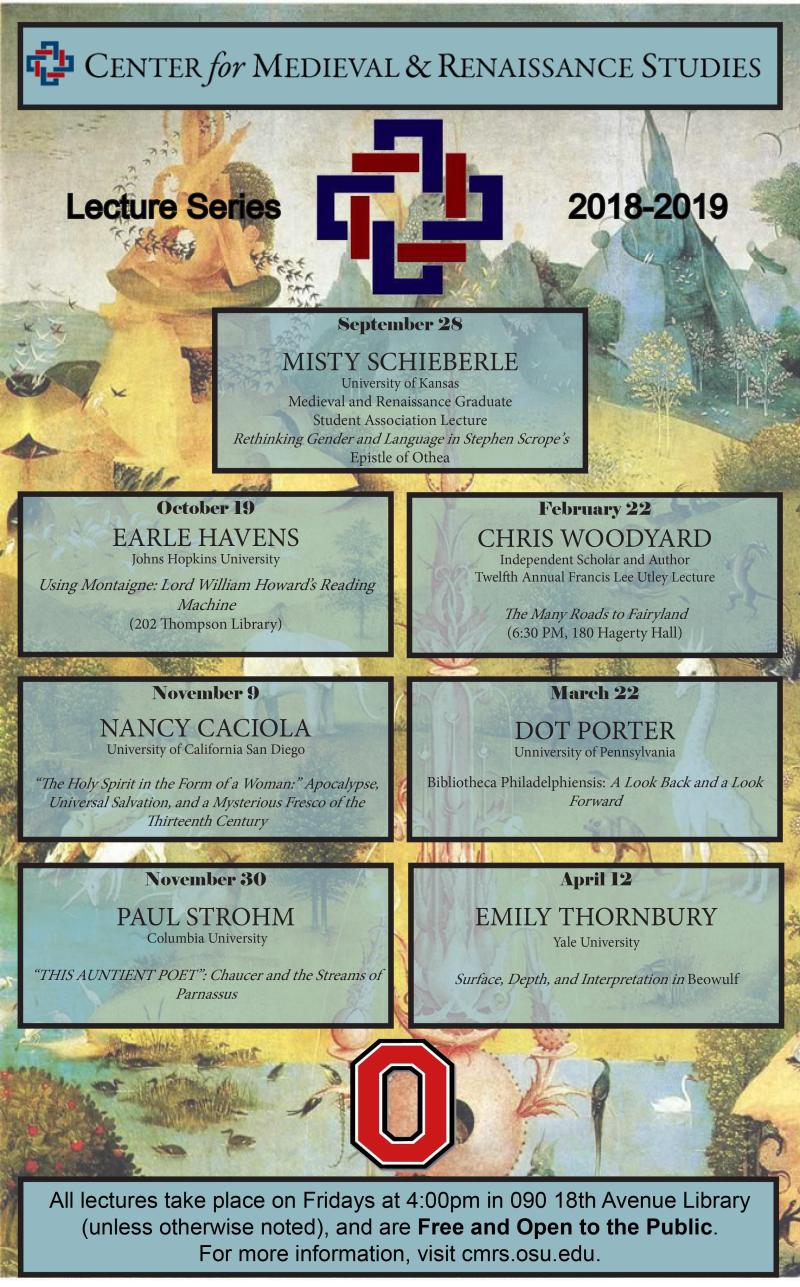
Misty Schieberle (Kansas): "Rethinking Gender and Language in Stephen Scrope's Epistle of Othea" (MRGSA Lecture)
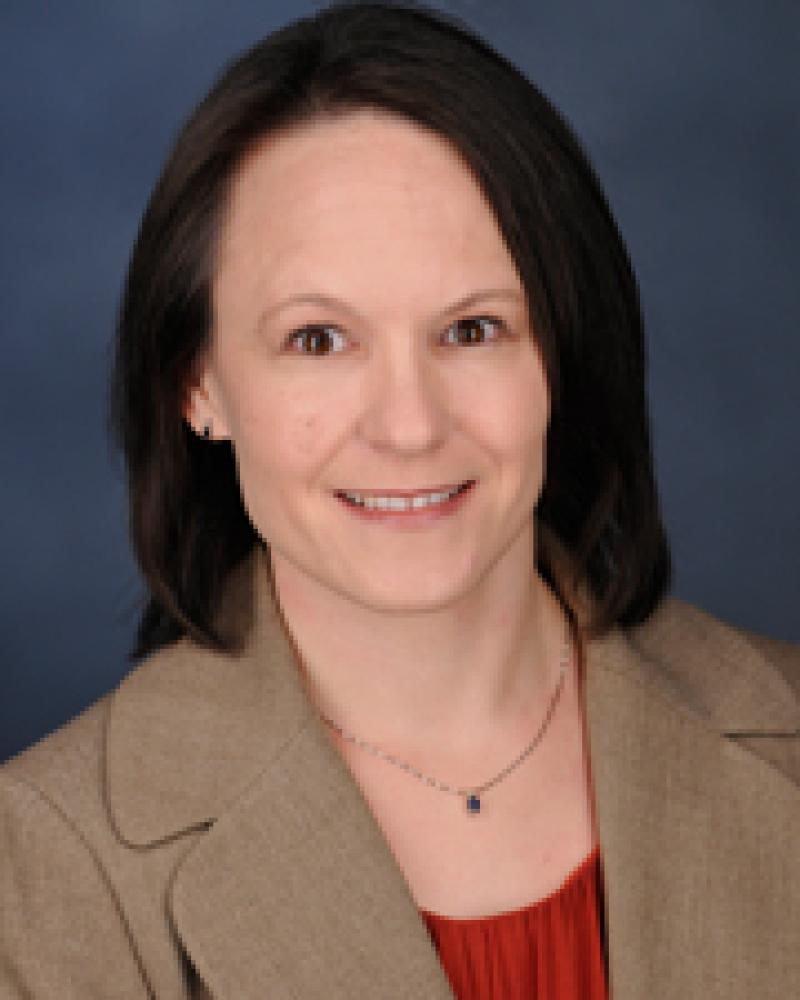
Date: Sept. 28
Time: 4:00 p.m.
Location: 18th Avenue Library, Room 090
Abstract: For decades the scholarly consensus about Stephen Scrope’s translation of Christine de Pizan’s Epistre Othea has asserted that it is a precise translation of her work but that he must have held some antifeminist positions because he denies Christine recognition as author, and he inexplicably genders as masculine multiple women from classical mythology. Yet a thorough examination of all three manuscripts and the closest extant manuscript to Scrope’s source challenges these views. Even though these copies are affected by scribal variants, as a whole, these manuscripts provide a fuller picture of Scrope’s process as translator and his difficulties grappling with the complexity not only of Christine’s often-unexpected perspectives but also of her language itself and even some of the classical myths that structure her work. When Scrope’s process is reconstructed, the evidence reveals him to be, at worst, passively antifeminist and, at best, an imprecise and uninformed translator. At its core, this analysis provides a methodology for examining manuscript traditions and reevaluating what previous scholars have meant when they term Scrope’s Epistle a “good” translation.
Bio: Misty Schieberle specializes in 14th- and 15th-century English literature, especially Chaucer, Gower, and Lydgate; gender and political literature; Christine de Pizan and medieval French literature in England; and manuscript studies. Her current research explores gender, fortune and fate, and manuscript studies in works by Chaucer, Gower, Lydgate, and Christine de Pizan that were popular in late medieval England. Her first monograph – Feminized Counsel and the Literature of Advice in England, 1350-1500 – explores Middle English political literature that represents women as wise, beneficial counselors to kings. She is currently working on a critical edition of medieval English translations of Christine de Pizan's Epistre Othea for the Middle English Texts Series and related studies of the diverse manuscript history of the Othea in French and English.
https://english.ku.edu/misty-schieberle
Earle Havens (Johns Hopkins): CMRS Symposium, "Books and Their Use[r]s," Keynote Address -- "Using Montaigne: Lord William Howard’s Reading Machine"
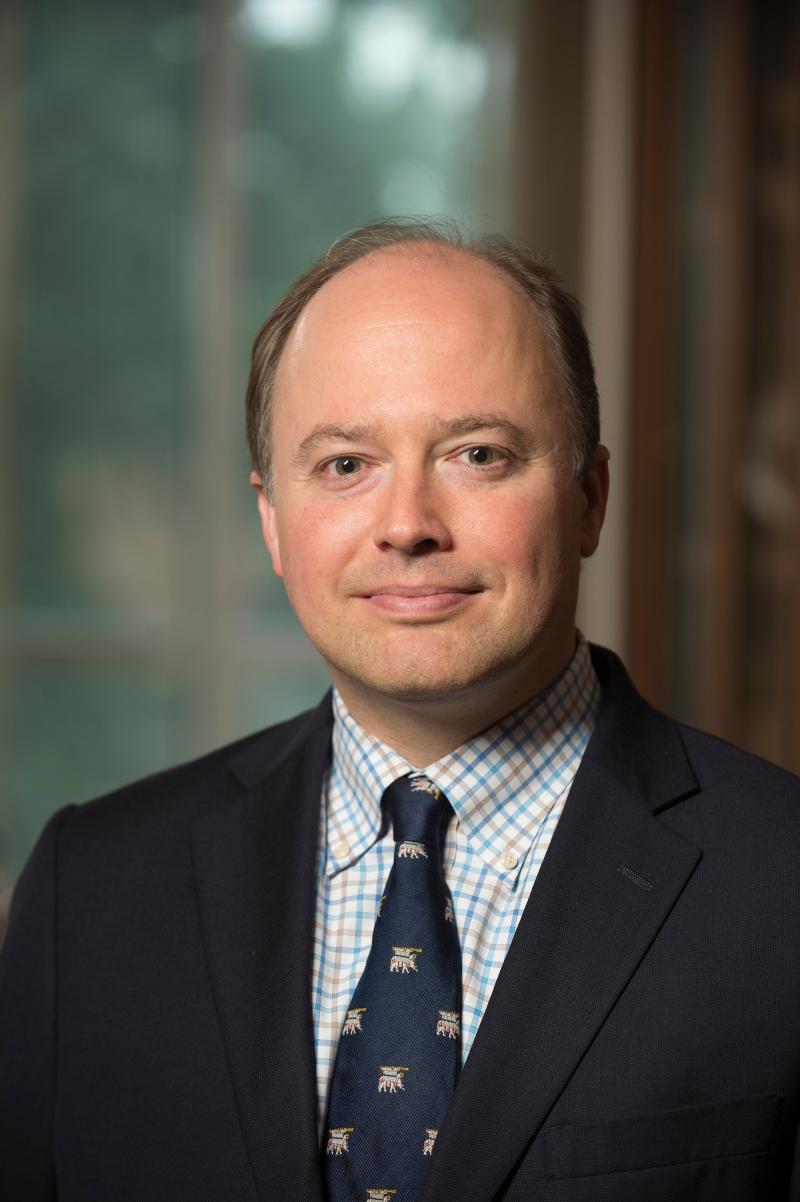
Date: Oct. 19-20
Time: 4 p.m.
Location: Thompson Library, Room 202
Abstract: Between c. 1614-18, the antiquary, loyal Catholic aristocrat, and youngest son of the executed 4th duke of Norfolk, Lord William Howard, read through his folio copy of John Florio’s monumental English translation of Montaigne’s Essays (1613). He did so with a pen in hand, preserving across most of its amply margined pages an unprecedented trove of some 900 separate manuscript notes. These marginalia invoke a rich reading life clearly amplified by the known contents of Lord William’s great antiquarian library of hundreds of medieval and Renaissance books, which he had built carefully over many decades at Naworth Castle in provincial Cumberland. These annotations reveal myriad ways in which Lord William “used” the Essays as a peculiar touchstone for a host of parallel personal interests and coincidental affinities that he shared with Montaigne himself. Both were humanists, both avid collectors of books and the literary commonplaces and anecdotes they contained, and both embattled Catholics living, reading, and writing within proximity to strong libraries under conditions of relative rustication. Much like Montaigne, Lord William was also quite free with his personal opinions and recollections, psychological speculations, and eccentric theories about human behavior—many of them expressed in the first person. Lord William systematically annotated, indexed, and cross-referenced his Montaigne, very much “using” the material text as a kind of “reading machine” suited to the longer-term exposition and memorialization of his deeply personal interpretive enterprise sustained over many years.
Bio: Nancy H. Hall Curator of Rare Books and Manuscripts, Sheridan Libraries, Earle Havens' scholarship and teaching focus on the history of the book and the material culture of texts from classical antiquity to the Renaissance. His current book projects include a study of 16th-century illicit printing, book smuggling, and scribal publication in the Catholic underground in Elizabethan England; a volume of essays on early modern literary forgery (with Walter Stephens, Department of German and Romance Languages and Literatures, JHU) through the JHU Press (2018); and a critical edition of the lives of the Roman Catholic Elizabethan Earl and Countess of Arundel, with Elizabeth Patton (Humanities Institute, JHU) and Susannah Monta (Department of English, University of Notre Dame) through the Toronto/PIMS series (projected 2019). He also serves as editor of a new monograph series with Ann Blair (History Department, Harvard University) and Anthony Grafton (History Department, Princeton University) called “Information Cultures” for the JHU Press, addressing the cultures, technologies, organization, and material transfer of historical information from antiquity to the digital age.
http://grll.jhu.edu/directory/earle-havens/
Nancy Caciola (UC San Diego): "The Holy Sprit in the Form of a Woman: Apocalypse, Universal Salvation, and a Mysterious Fresco of the Thirteenth Century"
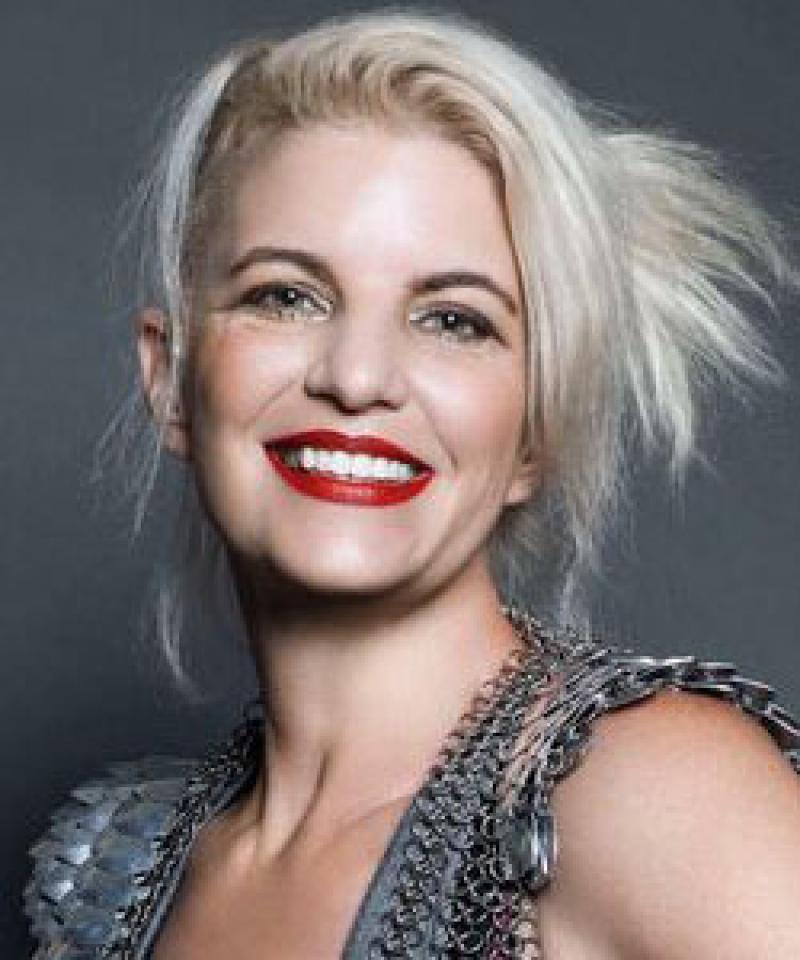
Date: Nov. 9
Time: 4 p.m.
Location: 18th Avenue Library, Room 090
Abstract: In 1300 an inquisitorial inquiry was held in the city of Milan. The target was a group of individuals united in devotion to a woman who had died nearly two decades earlier. Her name was Guglielma, and many had become convinced that she was the third person of the Trinity, the Holy Spirit. They believed that Guglielma would resurrect on the feast of Pentecost in 1300; that she would initiate a new age of history and set a woman upon the papal throne; and that through her all human beings would be redeemed, including Jews, Muslims, Pagans, and heretics. My paper examines the group’s theology–particularly the notion of universal salvation–through the detailed analysis of a little-known sinopia (an under-sketch for a fresco) depicting a woman as part of a Trinity. I discovered this artwork in a suburban Milanese abbey and am the first to connect its content to the Guglielmite group.
Bio: Nancy Caciola is broadly interested in the religious and social construction of identities in the later Middle Ages as well as the boundary between life and death in medieval thought, and the varieties of ways of imagining return from the dead. Her latest book is Afterlives: The Return of the Dead in the Middle Ages (Cornell UP).
https://history.ucsd.edu/people/faculty/caciola.html
Paul Strohm (Columbia): "'This Auntient Poet': Chaucer and the Streams of Parnassus"
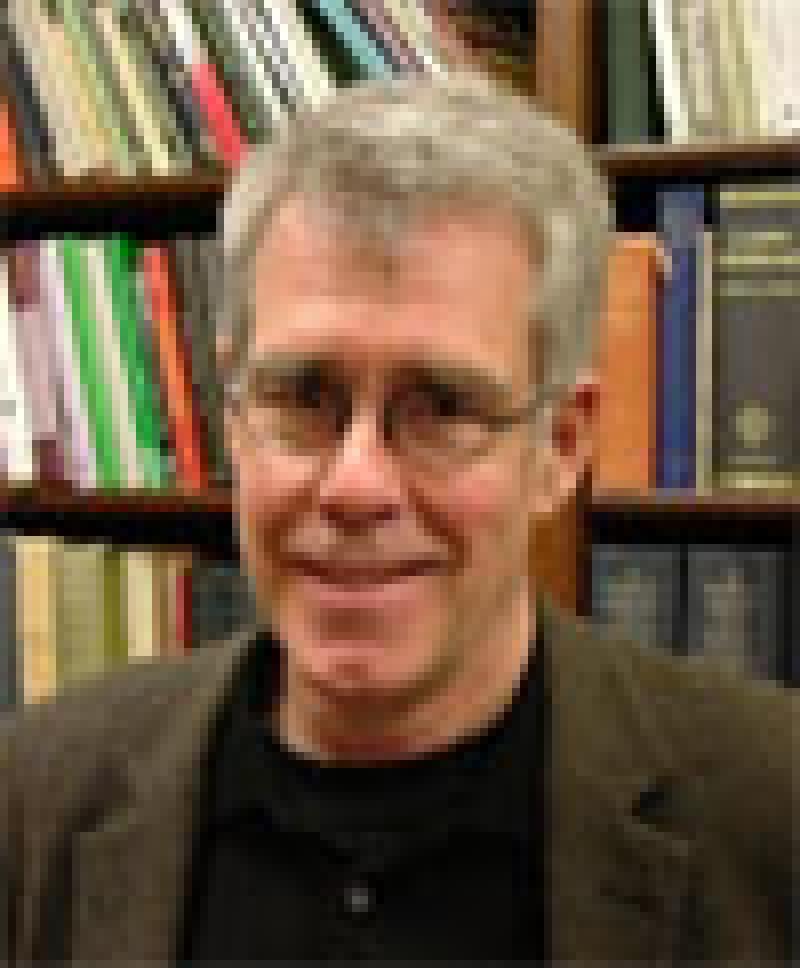
Date: Nov. 30
Time: 4 p.m.
Location: 18th Avenue Library, Room 090
Abstract: The Elizabethan poets wanted the benefits of a literary tradition, with Geoffrey Chaucer as its progenitor, but also chafed at its restrictions. They honored him as the father of English poetry, but sniped at his accomplishments, declared him over the hill, and even, at worst, derided him as vulgarian and clown. This lecture will acknowledge the full spectrum of such minimizations, but will then turn to a counter-tradition of more wholehearted acceptance, as exemplified by Robert Green’s 1592 Vision. In this seldom-noticed work, Greene stages a spirited debate between Geoffrey Chaucer and John Gower about the means and proper objectives of poetry. Chaucer takes the fall and loses the debate, but receives his most whole-hearted Elizabethan reading along the way.
Bio: Most recently J.R.R. Tolkien Professor of English Language and Literature at the University of Oxford, Paul Strohm joined the Columbia faculty in fall 2003. His area of principal interest is medieval literature with a recent emphasis on transitions from 'medieval' to 'early modern.' His teaching and research have concerned the 'affiliated text,' with special attention to textuality and history and to genre and social change. Publications include: Social Chaucer (Harvard, 1989, 1994); Hochon's Arrow: The Social Imagination of Fourteenth-Century Texts (Princeton, 1992); England's Empty Throne: Usurpation and Textual Legitimation, 1399-1422 (Yale UK, 1998); Theory and the Premodern Text (Minnesota, 2000); Politique: Languages of Statecraft Between Chaucer and Shakespeare (Notre Dame, 2005). He has previously been departmental Chair and President of the Faculty Council at Indiana University, has held various national offices and posts with the AAUP (was recently appointed to a three year term on the National AAUP Committee on Academic Freedom and Tenure), and in 2001-3 was Chair of the English Faculty at the University of Oxford.
http://english.columbia.edu/people/profile/440
**Spring 2019**
Chris Woodyard: "The Many Roads to Fairyland"
Popular Culture and the Deep Past Keynote and Utley Lecture
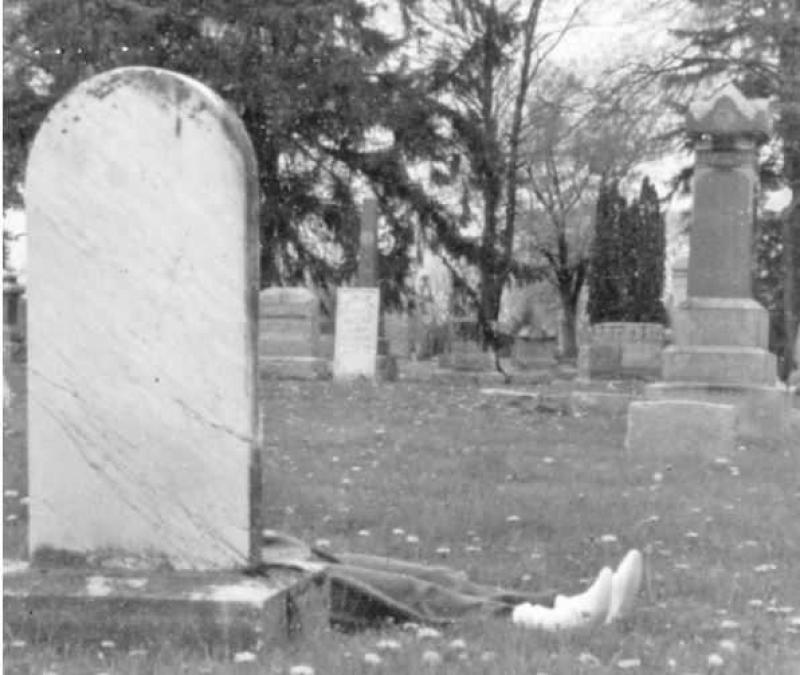
Date: Feb. 22
Time: 6:30
Location: 180 Hagerty Hall
Abstract: Just as the Fairy Queen showed Thomas of Erceldoune three roads, there are many highways and byways in fairylore. Our keynote address will begin with a case of fairy abduction, followed by a brief history of the transformation of early malevolent and dangerous fairies to the present-day twinkling guardians of nature as seen in popular culture, including tales directed at children.
The striking parallels between the fairies of the Medieval period as described in poetry, ballads, and exempla and the fairies of the 19th century will be examined. Themes addressed will include: the recurring conflation or confusion between the Queen of Heaven and the Queen of Fairyland; archaic fairy fashions; the fairy blast; and the relationship between fairies and the dead.
As the corpse road is one of the lesser-known roads to Fairyland, we find ghostlore and fairylore overlapping in reports of White Ladies, Banshees, spook-lights, and Boggarts. The address will conclude with thoughts on the renewed interest in fairies in the 21st century, including the revival of the Fairy Investigation Society and its new Fairy Census, fairy cosplay, and Faerie as a spiritual path.
Bio:
Chris Woodyard is an Ohio writer and historian. She received her BA degree with Honors in Medieval and Renaissance Studies from The Ohio State University, where her emphasis was on art history. She is the author of nine books on Ohio ghost-lore, the Haunted Ohio series, as well as three volumes on historical ghost stories, and The Victorian Book of the Dead, a book on the popular and material culture of Victorian mourning and death. She has given presentations at the Costume Society of America on "The Woman in Black: Victorian Mourning as Criminal Disguise" and "Making Shrouds: Mode, Memory, and Memento Mori." Her chapter on Irish fairylore in the United States entitled “Changelings and Banshees: Irish America” was included in the 2018 book, Magical Folk: British & Irish Fairies 500 AD to the Present, edited by Simon Young and Ceri Houlbrook, (London: Gibson Square), a collection of essays on the regional fairy-lore of Britain and Ireland, with a look at how these beliefs translated to the United States.
She is a member of the Costume Society of America, The Fairy Investigation Society, and the Research Society for Victorian Periodicals.
**Cancelled - Dot Porter (Penn): "Books of Hours as Transformative Works"
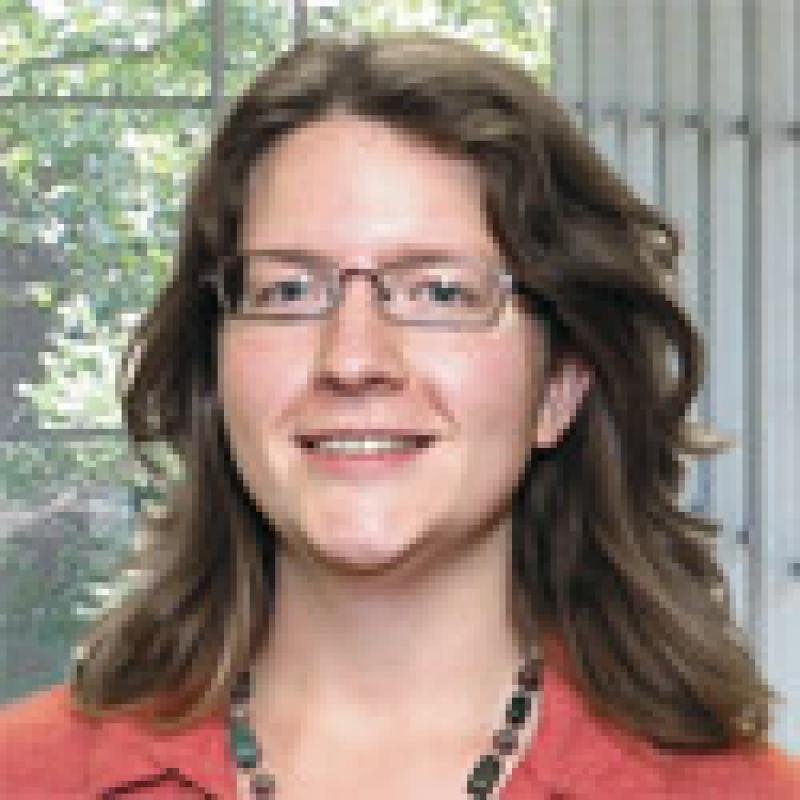
Date: March 22
Time: 4 p.m.
Location: 18th Avenue Library, Room 090
Abstract: Books of Hours are perhaps unique in the landscape of medieval manuscripts in that while they are initially based on existing texts – the liturgical hours used by monastic houses for the scheduling of daily prayers and additional prayers and offices – over the course of the 14th and 15th centuries they took up a life of their own. This resulted in the creation and use of a large number of books containing a variety of prayers and programs of iconography, representing uses depending on location and time of creation. While these books were created under certain circumstances, and frequently for specific people, as Kathryn Rudy in particular has discussed it was common for them to be modified over time, depending on the needs and desires of the people who owned and used them. They were quite literally formed and then transformed over time.
The modern concept of Transformative Work comes out of fandom, and usually refers to things like fan fiction (stories written by fans using characters and themes from a TV show or film) or fan art. Transformative work, fan fiction in particular, is a type of textual reception, a cousin of the work that writers have done throughout history, borrowing characters and themes from the Bible, for example, and creating new stories around them. What makes the modern Transformative Work distinct is that the reception is affective - rather than being focused the text itself, it’s focused on how people feel about the text. There is no question that people in the later middle ages felt very strongly about their books of hours and that their affection is shown in the physical books in many different ways. In this lecture I will discuss my current work considering books of hours, both textually and codicologically, through the modern lens of the Transformative Work.
Bio: As Curator of Digital Research Services in the Schoenberg Institute for Manuscript Studies, Dot Porter participates in a wide-ranging digital humanities research and development team within the context of a special collections department. Dot's projects focus on the digitization and visualization of medieval manuscripts. Dot holds an MA in Medieval Studies from Western Michigan University, and an MS Library Science from UNC-Chapel Hill. She has worked on a variety of digital humanities projects over a decade-long career, focusing on materials as diverse as ancient texts and Russian religious folklore, providing both technical support and scholarly expertise. From 2010 until March 2013, she was the Associate Director for Digital Library Content and Services at the Indiana University Bloomington Libraries, where she led in planning and implementing new services to support librarians and faculty in the creation of digital projects. She has also worked for the Digital Humanities Observatory at the Royal Irish Academy, and the Collaboratory for Research in Computing for Humanities at the University of Kentucky.
http://dla.library.upenn.edu/dla/staff/record.html?id=619
Emily Thornbury (Yale): "Surface, Depth, and Interpretation in Beowulf"
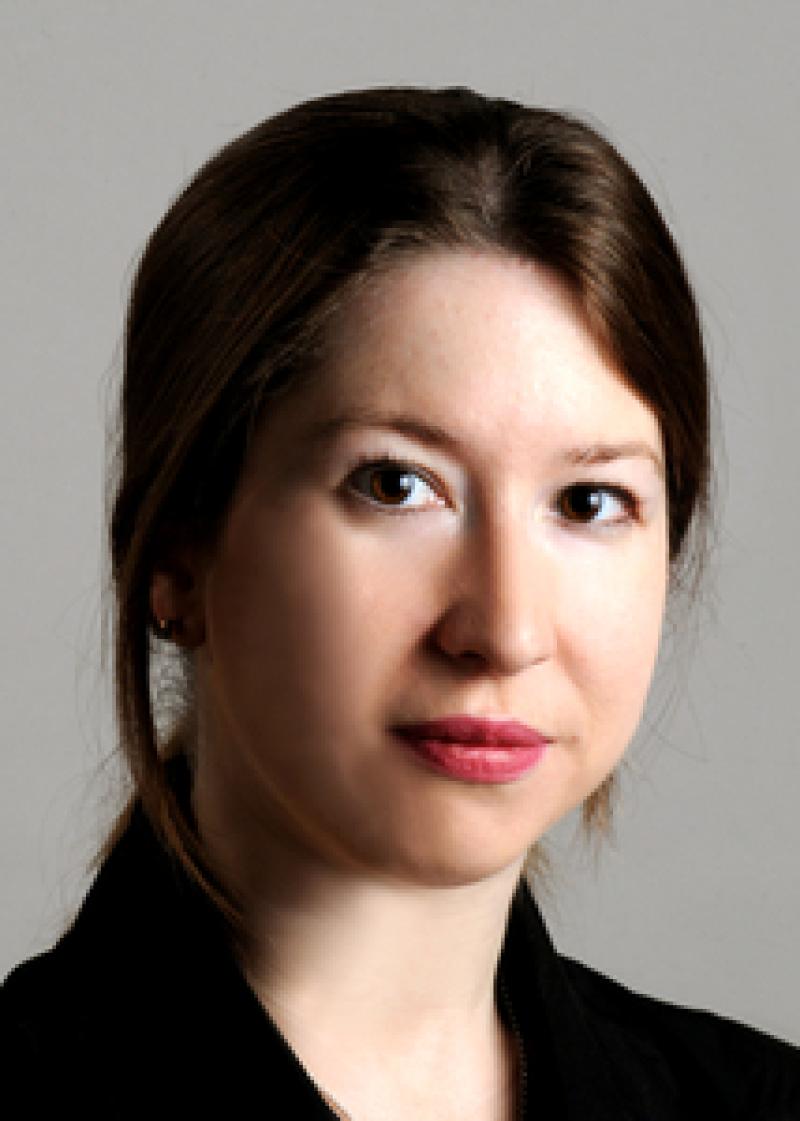
Date: April 12
Time: 4 p.m.
Location: 18th Avenue Library, Room 090
Abstract: In Beowulf we find a series of conceptual metaphors for interpretation: hunting; diving; buried treasure. A closer look, however, reveals a fundamental conflict between the views expressed by these metaphors, a conflict centered on the presence or absence of a surface-depth dichotomy. Within the text, we can see the Beowulf-poet wrestling with a Classically-derived worldview that privileges the hidden and associates the surface with deception. Ultimately the poet seems to have found himself unable either to accept this new metaphor, or, having understood it, to return to earlier concepts that presumed the surface acted as a sure guide to truth—a philosophical dilemma that contributes to the apocalyptic bleakness of the poem’s end. In Beowulf’s conflict, then, we can learn a great deal about the alterity of Anglo-Saxon thought, and about the real ambivalence that sometimes accompanied the importation of Mediterranean philosophy.
Bio: I've worked extensively on the role of poets and poetry in Anglo-Saxon England; my monograph on the topic, Becoming a Poet in Anglo-Saxon England, was published by Cambridge University Press in early 2014. New projects include work on ornament and aesthetics in early medieval England.
https://english.yale.edu/people/tenured-and-tenure-track-faculty-professors/emily-thornbury
